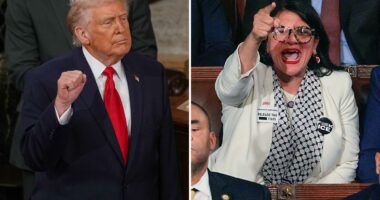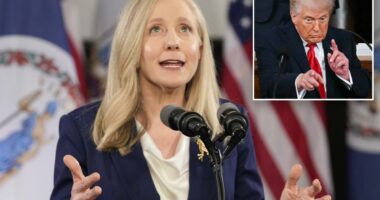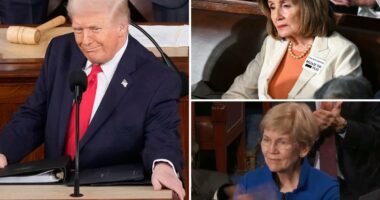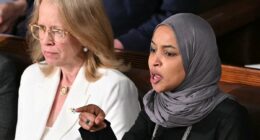Share this @internewscast.com
Robert Redford, the Hollywood icon turned Oscar-winning director, liberal activist, and a pivotal figure in independent cinema, passed away on Tuesday at the age of 89.
Redford passed “at his home at Sundance in the mountains of Utah — the place he loved, surrounded by those he loved,” stated publicist Cindi Berger. The cause of death was not disclosed.
Following his rise to fame in the 1960s, Redford became one of the leading stars of the ’70s with films like “The Candidate,” “All the President’s Men,” and “The Way We Were,” culminating that era with the best director Oscar for 1980’s “Ordinary People,” which also secured the best picture award. His wavy blond hair and youthful smile made him a heartthrob, but he strove to move beyond his appearance — through political activism, taking on non-glamorous roles, and promoting indie films.
His varied roles included playing Washington Post journalist Bob Woodward, a mountain man in “Jeremiah Johnson,” and a double agent in the Marvel Cinematic Universe, co-starring with Jane Fonda, Meryl Streep, and Tom Cruise. Yet, his most famous partnership was with longtime friend, fellow activist, and prankster Paul Newman, with whom he shared a warm, teasing rapport. Redford portrayed the crafty outlaw alongside Newman in the 1969 hit “Butch Cassidy and the Sundance Kid,” which inspired the Sundance Institute and festival. He also joined Newman in the 1973 best picture Oscar-winning film “The Sting,” earning a best-actor nomination as a con artist from 1930s Chicago.
Roles in films became less frequent after the ’70s as Redford shifted focus to directing and producing, significantly impacting the independent film scene through the Sundance Institute in the 1980s and ’90s. Nonetheless, he starred in the 1985 best picture winner “Out of Africa” and received acclaim in 2013 for his performance as a stranded sailor in “All is Lost,” where he was the sole performer. In 2018, he was lauded once more in what he called his farewell film, “The Old Man and the Gun.”
“I just figure that I’ve had a long career that I’m very pleased with. It’s been so long, ever since I was 21,” he told The Associated Press shortly before the release of the film. “I figure now as I’m getting into my 80s, it’s maybe time to move toward retirement and spend more time with my wife and family.”
Sundance is born
Redford had watched Hollywood grow more cautious and controlling during the 1970s and wanted to recapture the creative spirit of the early part of the decade. Sundance was created to nurture new talent away from the pressures of Hollywood, the institute providing a training ground and the festival, based in Park City, Utah, where Redford had purchased land with the initial hope of opening a ski resort. Instead, Park City became a place of discovery for such previously unknown filmmakers as Quentin Tarantino, Steven Soderbergh, Paul Thomas Anderson and Darren Aronofsky.
“For me, the word to be underscored is ‘independence,’” Redford told the AP in 2018. “I’ve always believed in that word. That’s what led to me eventually wanting to create a category that supported independent artists who weren’t given a chance to be heard.
“The industry was pretty well controlled by the mainstream, which I was a part of. But I saw other stories out there that weren’t having a chance to be told and I thought, ‘Well, maybe I can commit my energies to giving those people a chance.’ As I look back on it, I feel very good about that.”
By 2025, the festival had become so prominent that organizers decided they had outgrown Park City and a pproved relocating to Boulder, Colorado, starting in 2027. Redford, who had attended the University of Colorado in Boulder, issued a statement saying that “change is inevitable, we must always evolve and grow, which has been at the core of our survival.”
Redford tended toward mainstream drama in his acting and directing, though he also appeared in several political narratives. He satirized campaigning as an idealist running for U.S. senator in 1972’s “The Candidate” and uttered one of the more memorable closing lines, “What do we do now?” after his character manages to win. He starred as Woodward to Dustin Hoffman’s Carl Bernstein in 1976’s “All the President’s Men,” the story of the Washington Post reporters whose Watergate investigation helped bring down President Richard Nixon.
With 2007’s “Lions for Lambs,” Redford returned to directing in a saga of a congressman (Tom Cruise), a journalist (Meryl Streep) and an academic (Redford) whose lives intersect over the war on terrorism in Afghanistan.
Redford was married twice, most recently to Sibylle Szaggars. He had four children, two of whom have died — Scott Anthony, who died in infancy, in 1959; and James Redford, an activist and filmmaker who died in 2020.
















